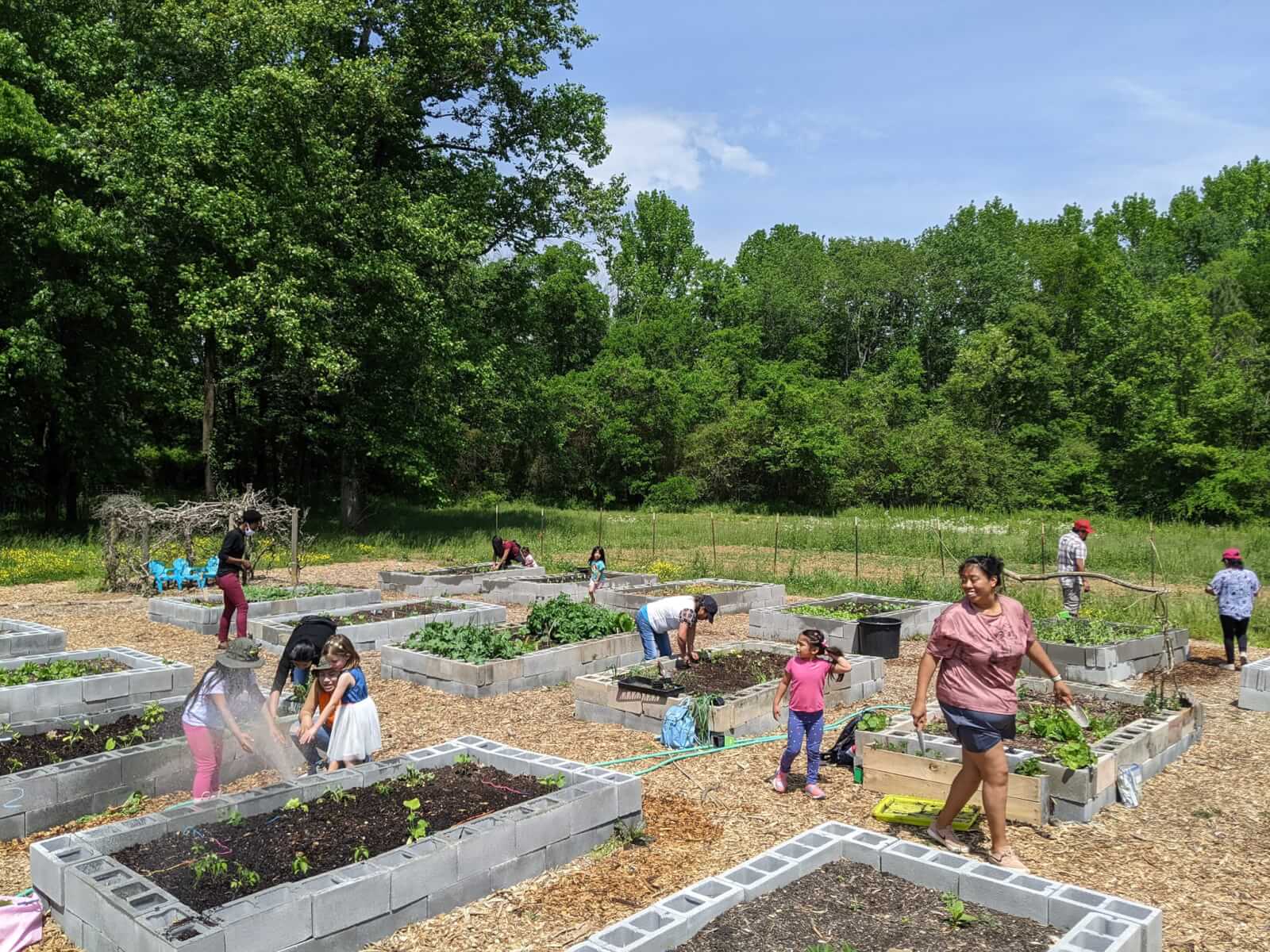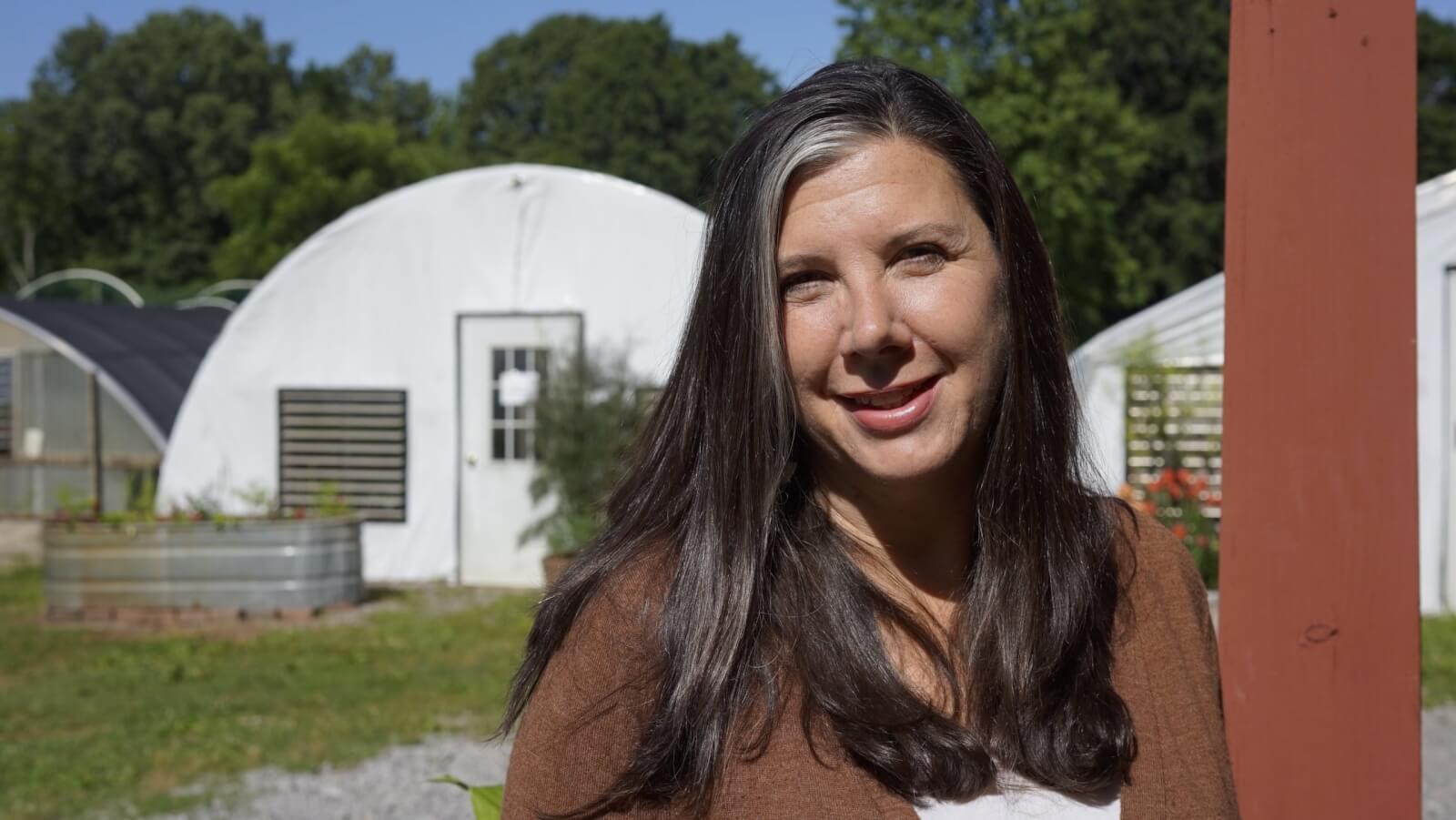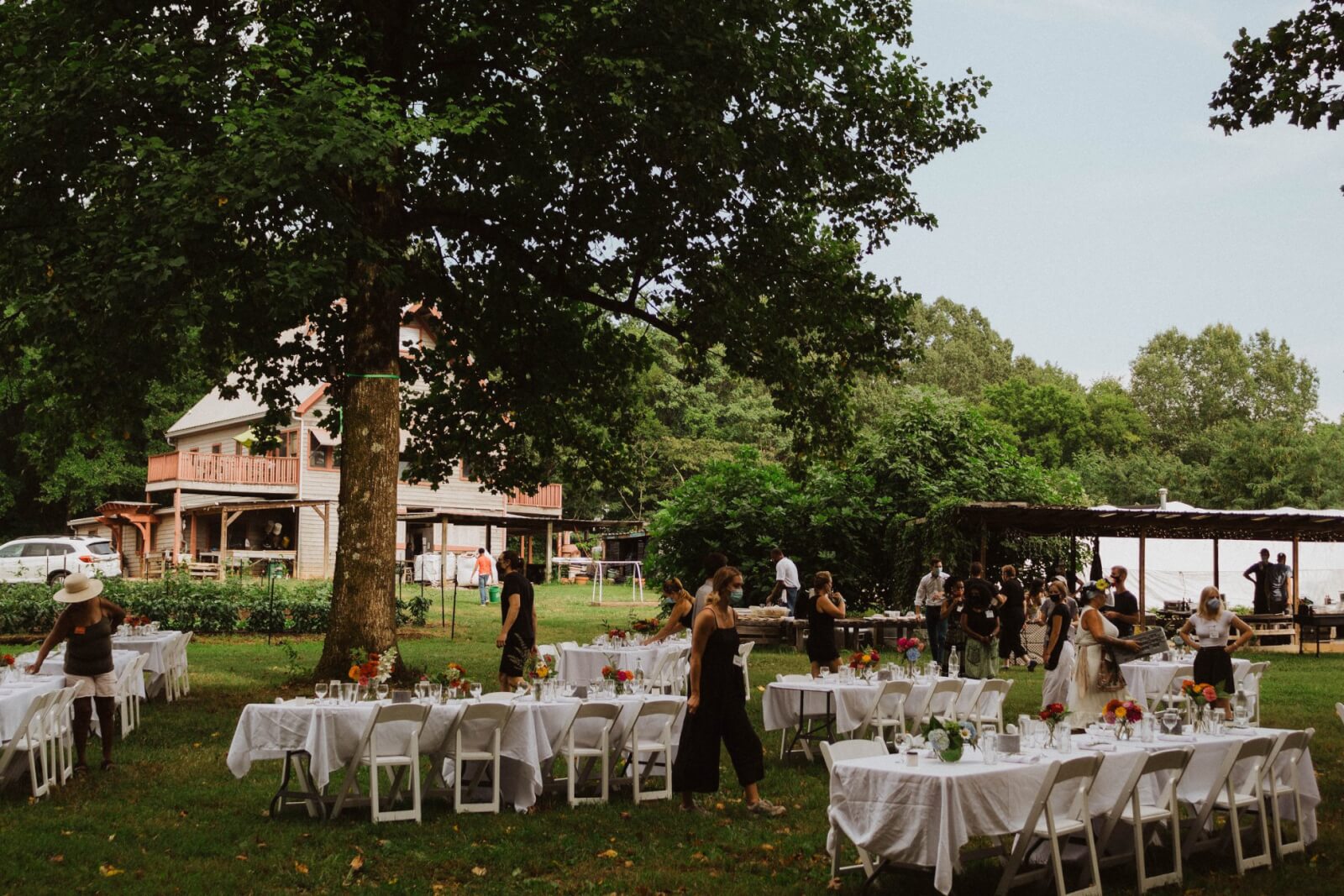Today’s FACE of the South: Melonie Lusk
Melonie Lusk arrived in Tennessee more than a decade ago. She was in search of wide-open spaces, and brought with her a long history in nonprofit leadership. Her stead as Executive Director of Crabtree Farms in Chattanooga has coincided with the farm’s pivot from growing food for people to growing people through food, and her own passion for food access — not just where food comes from, but how people access it.
Access to land is key for nurturing local farmers and making local food available to all, says Melonie. Alongside a team of three farmers at Crabtree, she works to expand growing areas for neighbors and up-and-coming farmers. This has led to monthly Spanish-immersion cooking classes, potluck gatherings, community garden beds, partnerships with celebrated local chefs, restaurants, and nonprofits, public and homeschool programming, and workshops in everything from soapmaking to canning to cooking with lavender.
As Melonie puts it simply, “Many of us picked wild berries when we were kids, and a lot of people don’t get to do that now. We’d love to have that opportunity for them here at the farm.” We’re pleased to welcome Melonie as our newest FACE of the South!

As you were growing up, was nonprofit work the path you envisioned for yourself?
This is a funny story. I was a bit of a Grateful Deadhead, and I traveled around with them a little. I noticed the children and families in this migrant culture — there was a lack of resources for the children, and that was a trigger for me to go to school and be part of the social services profession, and help people find solutions to their challenges.
My first nonprofit job was in a mental health clinic while I was still in school. I went on to work with the homeless population and then Big Brothers Big Sisters in southern Maryland. I’d moved from New Hampshire to just outside of Washington, D.C., and then to Tennessee.
Did you move to Tennessee to become the Executive Director at Crabtree Farms?
I had actually lost a husband to cancer, and we came to Tennessee for land, as my son was racing dirt bikes at the time. It was 2010 and the tail end of a recession. I did nonprofit consulting work in Chattanooga, and my now husband and I opened a motorcycle shop in rural Tennessee. When the opportunity at Crabtree Farms came up, it felt like it was meant to be. Food access was a growing passion of mine at that time, and it was an opportunity to lend my proven skillset to the organization.

How does your role at Crabtree Farms present you with new challenges and triumphs?
The triumph is opening up trust in dialogue with a cross-cultural neighborhood. It’s about developing bonds and relationships to find solutions together. Part of that is lifting the voices of the disenfranchised. The success of our new community gardening program is in learning about the different cultures of our neighbors.
In some community beds, we plant a combination of Cherokee native crops (the Cherokee Nation farmed the Tennessee River Valley for centuries) and others suggested by some of our Guatemalan neighbors. Because we’re talking about Indigenous people and Indigenous growing practices, there’s room to make that transition of, Oh yes, we always did this at our home and now we can do this here and we can rely on the history and the knowledge of other Indigenous people.
Our philosophy is also to bring up the voice and power of local farms and small farmers. A local farmer named Jamar Sanders is working on growing a spiral garden here, including flowers and produce. In the metrics of how much food he gives away and how much he sells, we can start gauging the economic impact of providing a little bit of land to an emerging farmer in an urban setting. That’s the activist direction that we’re moving in, and I’m excited about that.
Tell us about community gardening. How does it fit into the mission of Crabtree Farms?
We reintroduced community garden beds in 2021. Of 30 beds, 20 are gifted to neighbors. The land beyond those is cleared for group-growing things that are part of the Mayan culture, as many of our Latinx neighbors descend from the Mayan culture.
The community gardening program has led to an amazing cross-cultural monthly potluck. Some may harvest okra out of their space and prepare it one way, while another family might prepare it a different way. It has turned into an exchange of sharing cultures. In addition to neighbors and families, some local restaurants and organizations have beds, including two local refugee organizations.

How do you see the farm’s visibility changing in Chattanooga?
Crabtree Farms is slated to be a stopping point along the forthcoming Riverwalk connector trail that will run between the St. Elmo and East Lake Park neighborhoods. We want to put a trailhead in place and be ready to receive neighbors and act as a connector. We’d love to do a perimeter trail around the farm, with foraging opportunities and food options at the actual trailhead.
Pre-pandemic — it’s building back up — about 3,000 kids a year came through to learn about food production. We have beekeepers and beehives for education and pollination. Since the pandemic, we’ve partnered with other agencies; Net Resources Foundation’s Leadership for Life Program brought high-school women out to the farm to get their hands in the garden, harvesting and preparing food and breaking bread with Chef Kenyatta Ashford, a local Black chef.
What, in your opinion, really engages the Chattanooga community?
Our spring and fall plant sale events also include food trucks on site. Our 100 Dinner is an amazing farm-to-table meal and our biggest fundraiser — all the food comes from within 100 miles. Some of the best chefs in town cook a multi-course meal, and we have local beer and kombucha, mead, and bluegrass music.
We have lots of U-Pick days for strawberries, blueberries, blackberries, tomatoes, flowers, and pumpkins. In one of our fields, four or five things are coming into harvest at any one time. People learn about harvesting — how to pick corn and the proper way to cut okra or cucumber. There are flowers and people can cut their own and pay by the stem, and the rest of the field is a well-balanced mix of items and people harvest and pay by the pound. We have many workshops. A great gal, a volunteer here for many years, actually started The Bitter Bottle, the first bitters company in Tennessee. So we’re kind of an incubator too.


Do you do any teaching yourself?
The medicine-making workshop I teach is a fun passion project that gets me out from behind my desk and was a direct result of conversations with cooking class participants who were curious about ways to use local herbs for skincare and immunity support. In skincare classes, we use beeswax from bees kept on the farm, and we explore a variety of herbs, like calendula and rosemary. Participants not only learn how to prepare products but also why natural ingredients are important and where to source them. We have done mocktail classes in the past and should do another one soon.
Are there particular restaurants and chefs in Chattanooga who you feel really embrace farm-to-table ideals?
About a dozen restaurants have weekly wholesale accounts with us. Eric Niel owns Main Street Meats and Easy Bistro, and we sell produce to Niedlov’s Bakery & Cafe. Some buy edible flowers for cocktails and salad garnishes, like Flying Squirrel.
We also sell our produce at our seasonal farm store and on Wednesdays at the Main Street Farmers’ Market. Chef Khaled Albanna buys produce for Calliope, a restaurant focusing on Levantine cuisine (he is from Jordan), which is located in Flora de Mel, a meadery; you can sample a flight of meads — alcohol made from honey — some made there, and some from Nashville.
Lupi’s is farm-to-table pizza — she grows the meat, raises the pigs and cows, eggs, and grows the produce. If she doesn’t have enough tomatoes, she buys from us. She owns the farm and the restaurants. It’s the real deal.
What is the best piece of advice you’ve ever received?
Never enter a room thinking you know more than everyone else, to think all you might never learn!
Aside from faith, family, and friends, what are three things you cannot live without?
Books, coffee, and gratitude.
Thank you, Melanie!
**********
Read more interviews with our inspirational FACES in our archives!


















